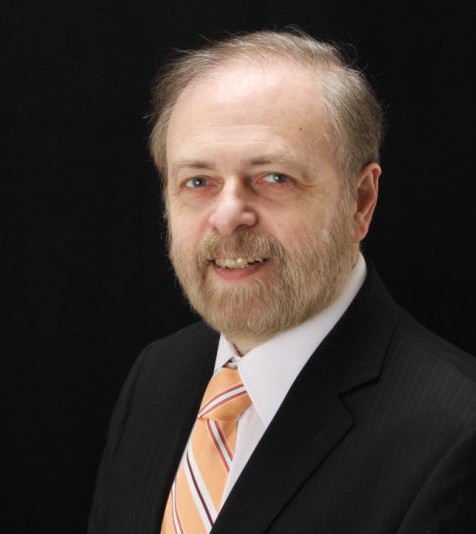By Rabbi Mordechai Levin
For many, the blowing of the shofar – a ram’s horn prepared for use as a musical instrument – is one of the most moving moments of the High Holy Days services. It is one of the earliest musical instruments known to man that is still in use. The shofar is first mentioned in the Torah (Exodus 19:16), at God’s revelation at Mount Sinai. It was commanded to be blown on Rosh Hashanah (Numbers 29:1).
During the month of Elul, which precedes Rosh Hashanah, the shofar is blown every morning — excluding Shabbat — immediately after the morning service. It is not sounded on the morning before the Jewish new year. It is sounded on the two mornings of Rosh Hashanah, but not on Shabbat; and once more at the conclusion of Yom Kippur.
There are three type of shofar blasts: Tekiah, a straight, unbroken sound that ends abruptly; Shevarim, a series of three disconnected sounds, whose combined duration equals that of a tekiah; and Teruah, a quick succession of short trills made up of nine staccato tones equivalent in duration to the tekiah. There is also a Tekiah Gedolah, a long blast.
Saadiah Gaon (882-942) offered several reasons for sounding the shofar, among them the following:
The sound of the shofar is similar to the trumpet blasts which announced the coronation of a king. On Rosh Hashanah, God created the world and became its sovereign. By sounding the shofar we accept God’s sovereignty upon ourselves
Rosh Hashanah is the first of the Aseret Yemei Teshuvah — Ten Days of Repentance — which conclude on Yom Kippur, and the shofar is sounded to encourage us to confront our past errors, repent, and return to God.
The shofar is evocative of God’s revelation at Mount Sinai, which was accompanied by the sounding of the shofar. By hearing it again we are reminded to commit to the teachings of the Torah, as our ancestors did.
The sound reminds us of the words of the Hebrew prophets, whose voices were compared to the sounding of a shofar, denouncing people’s wrongdoings, and calling them to return to God.
Rabbi Moshe ben Maimon (1135-1204), gave this explanation (Mishneh Torah, Hikhot Teshuvah 3:4): “Although it is a divine decree that we blow the shofar on Rosh Hashanah, there is a hint of the following idea contained in the command. As if to say: ‘Awake from your slumber, you who have fallen asleep in life, and reflect on your deeds. Remember your Creator. Those of you who miss reality in the pursuit of shadows, and waste their years in seeking vain things which do not profit or deliver, look well into your souls and improve your behavior. Forsake each of you your evil ways and thoughts.’”
A story by Jacob ben Wolf Kranz (1741-1804), also known as the Dubner Maggid, describes the purpose of the shofar. A naive villager came to a big city for the first time. He was awakened in the middle of the night by the loud beating of drums. He then inquired, “What’s this all about?” He was told that a fire had broken out and the drum beating was the city’s fire alarm.
On his return home he reported to the village elders. “They have a wonderful system in the big city; when a fire breaks out the people beat their drums and before long the fire burns out.”
They then ordered a supply of drums and distributed them to the population. When a fire broke out sometime later, they beat the drums, and while the people waited for the flames to die out, a number of their homes burned to the ground.
A visitor to the village derided the simplistic people. “Do you think a fire can be put out by beating drums? You beat the drums as an alarm, and then you must take measures to extinguish the fire.”
This, said the Dubbner Maggid, applies to those of us who believe that beating the breast during the Al Het confessional, raising our voices during worship, and blowing the shofar, will put out the fires of sin and evil that burn in us. They are only an alarm, a warning to wake up and resort to soul-searching, so that we may merit the favor of God.
On this Rosh Hashanah, may the sound of the shofar move us to search our souls, to correct our mistakes, and to decide to live a meaningful year. My best wishes for a year of life, health, fulfillment, justice and peace. Shanah Tovah!
 is the rabbi of Congregation Beth Israel in Munster, IN. He received his rabbinic ordination from the Latin American Rabbinical Seminary, and is a member of the Rabbinical Assembly. In 2010, he was awarded an Honorary Doctorate of Divinity from the Jewish Theological Seminary in New York City for his years of dedicated service to the Conservative movement and the Jewish community...
is the rabbi of Congregation Beth Israel in Munster, IN. He received his rabbinic ordination from the Latin American Rabbinical Seminary, and is a member of the Rabbinical Assembly. In 2010, he was awarded an Honorary Doctorate of Divinity from the Jewish Theological Seminary in New York City for his years of dedicated service to the Conservative movement and the Jewish community...